Kohanim Without Borders – Parashat Tzav
“…He shall then take off his garments and put on other garments, and he shall remove the ashes to outside the camp…” – Vayikra 6:4 וּפָשַׁט אֶת בְּגָדָיו וְלָבַשׁ בְּגָדִים אֲחֵרִים וְהוֹצִיא אֶת הַדֶּשֶׁן אֶל מִחוּץ לַמַּחֲנֶה – ויקרא ו, ד One of the tasks in the Mishkan was to clear the ashes from atop the Altar and dispose of […]
Limits and Permits
“…Limits and permits..” זֹאת תּוֹרַת הָעֹלָה הִוא הָעֹלָה עַל מוֹקְדָה עַל הַמִּזְבֵּחַ כָּל הַלַּיְלָה עַד הַבֹּקֶר – שמות ו, ב After a sacrifice in the Temple is slaughtered and some of its blood sprinkled on the Altar, the kohanim burn the choice fats of the animal (and in some instances, all its fats and limbs) on the Altar. Though all […]
The Best and Finest – Parashat Vayikra
“…All fat is to G-d…” – Vayikra 3:16 כָּל חֵלֶב לַה – ויקרא ג, טז When an animal is offered as a sacrifice, its premium fats—the choicest parts of its flesh—are burned on the Altar. The Rambam (Issurei Mizbeiach 7:11) interprets this as a universal principle as well: “The same applies to everything done for the sake of G-d—it must […]
The Selfless Fuel of Sacrifice
“…And if one offers an offering of a Mincha…” – Vayikra 2:1 וְנֶפֶשׁ כִּי תַקְרִיב קָרְבַּן מִנְחָה – ויקרא ב, א The word mincha alone means “a grain-offering,” rendering superfluous the word קרבן, offering, which precedes it in this verse. The Midrash explains that this additional word comes to teach us of another group of offerings that may be donated and […]
The Pure – Parashat Vayikra
“…Why do schoolchildren begin their learning with Toras Kohanim (the Book of Vayikra) and not with Beraishis? Since the children are pure and the sacrifices are pure, let the pure come and deal with the pure…” – Vayikra Rabbah 7:3 מפני מה מתחילין לתינוקות בתורת כהנים, ואין מתחילין בבראשית? אלא שהתינוקות טהורין והקרבנות טהורין, יבואו טהורין ויתעסקו בטהורין – ויקרא […]
Why Korbanos? That’s Why…
“…A man who shall bring from you an offering to G-d…” – Vayikra 1:2 אָדָם כִּי יַקְרִיב מִכֶּם קָרְבָּן לַה’ – ויקרא א, ב The significance that the Torah attributes to animal sacrifice is mystifying. Why would the physical slaughter and burning of an animal be our primary form of Divine worship (see Avos 1:2 and Yerushalmi, Taanis 4:1)? Would […]
Mass-Energy Equivalence – Parashat Pikudei
“…These are the accounts of the Mishkan, the Mishkan of the Testimony, as they were overseen by Moshe…” – Shemos 38:21 אֵלֶּה פְקוּדֵי הַמִּשְׁכָּן מִשְׁכַּן הָעֵדֻת אֲשֶׁר פֻּקַּד עַל פִּי משֶׁה – שמות לח, כא The total weight of all the gold, silver, and copper that was donated for the Mishkan is recorded in Parshas Pikudei. No mention is made, […]
The Gifts of the Gifted
“…All the women whose hearts uplifted them with wisdom spun the goat hair…” – Shemot 35:26 וְכָל הַנָּשִׁים אֲשֶׁר נָשָׂא לִבָּן אֹתָנָה בְּחָכְמָה טָווּ אֶת הָעִזִּים – שמות לה, כו This is particularly remarkable considering that Bnei Yisrael had not been instructed to process the goat hair at all before donating it to the Mishkan. The manner in which the […]
When Broken Comes Before Whole
“…And g-d said to Moshe: “hew for yourself two stone tablets like the first ones…” – Shemos 35:1 וַיֹּאמֶר ה’ אֶל משֶׁה פְּסָל לְךָ שְׁנֵי לֻחֹת אֲבָנִים כָּרִאשֹׁנִים – שמות לה, א The Midrash (Shemos Rabbah 46:1) relates that Moshe was distressed over having broken the Luchos, until G-d said to him, “Do not be pained over the first tablets, which […]
A Model
“…And now, if you forgive their sin… but if not, erase me now from your book that you have written…” – Shemot 32:32 וְעַתָּה אִם תִּשָּׂא חַטָּאתָם וְאִם אַיִן מְחֵנִי נָא מִסִּפְרְךָ אֲשֶׁר כָּתָבְתָּ – שמות לב, לב When Bnei Yisrael rebelled against the Torah’s most basic principle and worshipped the Golden Calf, G-d threatened to wipe Bnei Yisrael out […]

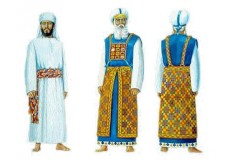

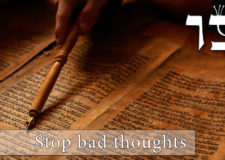
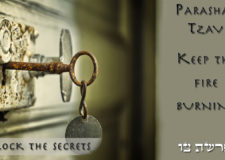

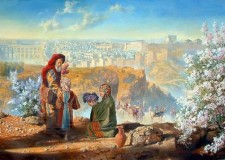
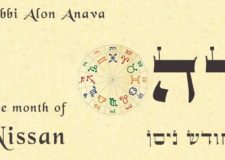
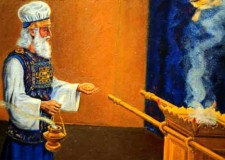
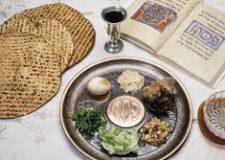
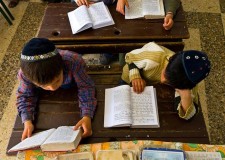
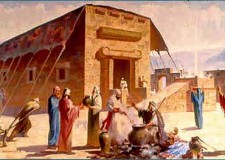
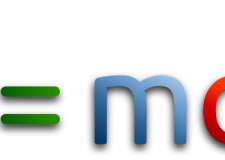

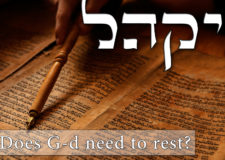
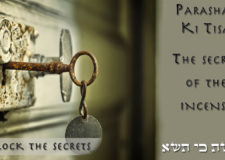

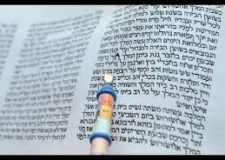




Follow Us!